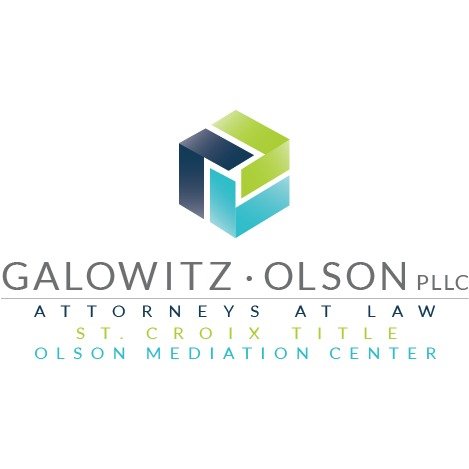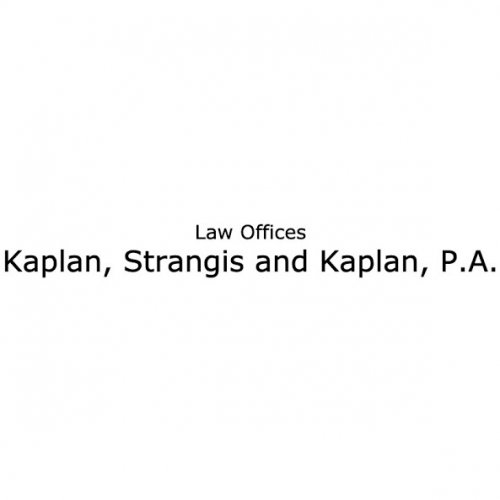Best Administrative Lawyers in Minnesota
Share your needs with us, get contacted by law firms.
Free. Takes 2 min.
Or refine your search by selecting a city:
List of the best lawyers in Minnesota, United States
About Administrative Law in Minnesota, United States
Administrative law in Minnesota governs the actions, procedures, and decisions of state and local government agencies. This branch of law ensures that government agencies follow the proper rules and regulations when enforcing statutes, issuing licenses, managing benefits, and handling public interests. Minnesota's administrative system is designed to provide fair and efficient processes for citizens and businesses that interact with, and sometimes dispute, decisions made by agencies such as the Department of Human Services or the Department of Transportation.
Why You May Need a Lawyer
Legal issues involving administrative law can arise in many everyday situations. Whether you are appealing the denial of unemployment benefits, contesting regulatory fines, facing professional licensing issues, seeking disability determinations, or dealing with zoning or permit disputes, these matters often require an understanding of complex government processes. A lawyer experienced in administrative law can help you navigate agency rules, represent you in hearings or appeals, and protect your rights during investigations or other proceedings.
Local Laws Overview
Minnesota has its own Administrative Procedures Act that governs most state agencies and how they adopt regulations, conduct hearings, and make decisions. Key aspects include the right to a hearing before an independent administrative law judge, requirements for agencies to provide notice and allow for public input, and provisions for judicial review of agency actions. Timeframes and procedures can vary depending on the agency and the specific legal issue. It is important to be mindful of deadlines for filing appeals and requests, as missing one may result in losing your right to contest an agency decision.
Frequently Asked Questions
What is an administrative law judge in Minnesota?
An administrative law judge is a neutral official who holds hearings and makes decisions about disputes between individuals or businesses and government agencies. These judges work for the Office of Administrative Hearings and are separate from agency staff.
What are some common administrative agencies in Minnesota?
Common administrative agencies include the Department of Human Services, Department of Employment and Economic Development, Department of Public Safety, Department of Health, and the Board of Medical Practice.
How do I appeal a decision from a state agency?
Typically, the agency will provide written instructions on how to appeal. This often involves submitting a request for a hearing within a set period, such as 30 days, after receiving notice of the decision.
Can I represent myself in an administrative law matter?
Yes, you can represent yourself. However, due to the complexity of administrative procedures and the potential stakes involved, consulting with an attorney is often advised.
What is the difference between administrative law and civil law?
Administrative law deals with the decisions and regulations of government agencies, while civil law generally addresses disputes between private parties. Administrative law focuses on public benefit programs, licensing, and regulation enforcement.
How does an administrative hearing work?
Administrative hearings are typically less formal than court trials. Both parties present evidence and arguments to an administrative law judge, who then issues a written decision.
What if I miss a deadline in my administrative case?
Missing a deadline can significantly harm your case and may bar you from further appeal. It is crucial to act quickly and consult an attorney if you believe you have missed an important date.
Are administrative agency decisions final?
Not always. Many agency decisions can be appealed to a higher administrative authority or to a state court if proper procedures are followed.
Do administrative decisions from Minnesota agencies affect federal law?
Generally, Minnesota agency decisions affect only state matters. However, in some areas like Medicaid, unemployment, or environmental law, state and federal issues may overlap.
Can I get help if I cannot afford a lawyer?
Yes, there are legal aid organizations and pro bono services available in Minnesota that assist low-income residents with some administrative law matters.
Additional Resources
If you need more information, the following resources can be helpful:
- Minnesota Office of Administrative Hearings: Oversees many administrative hearings and provides guides for self-represented parties. - Minnesota State Law Library: Offers legal research and information services to the public for administrative law issues. - Minnesota Legal Services Coalition: Provides free legal assistance for qualifying low-income residents. - Minnesota Department of Human Rights: Handles discrimination claims and related administrative proceedings. - Volunteer Lawyer Referral Services: Pairs individuals with volunteer attorneys in administrative cases.
Next Steps
If you believe you need legal assistance with an administrative law issue in Minnesota, start by identifying the specific agency involved and gather any correspondence you have received. Keep track of important deadlines for appeals. Consult an attorney with experience in administrative law to review your options and represent your interests. If cost is a concern, reach out to local legal aid organizations to determine if you qualify for help. Approach your administrative issue promptly and thoughtfully to ensure your rights are protected.
Lawzana helps you find the best lawyers and law firms in Minnesota through a curated and pre-screened list of qualified legal professionals. Our platform offers rankings and detailed profiles of attorneys and law firms, allowing you to compare based on practice areas, including Administrative, experience, and client feedback.
Each profile includes a description of the firm's areas of practice, client reviews, team members and partners, year of establishment, spoken languages, office locations, contact information, social media presence, and any published articles or resources. Most firms on our platform speak English and are experienced in both local and international legal matters.
Get a quote from top-rated law firms in Minnesota, United States — quickly, securely, and without unnecessary hassle.
Disclaimer:
The information provided on this page is for general informational purposes only and does not constitute legal advice. While we strive to ensure the accuracy and relevance of the content, legal information may change over time, and interpretations of the law can vary. You should always consult with a qualified legal professional for advice specific to your situation.
We disclaim all liability for actions taken or not taken based on the content of this page. If you believe any information is incorrect or outdated, please contact us, and we will review and update it where appropriate.
Browse administrative law firms by city in Minnesota
Refine your search by selecting a city.










